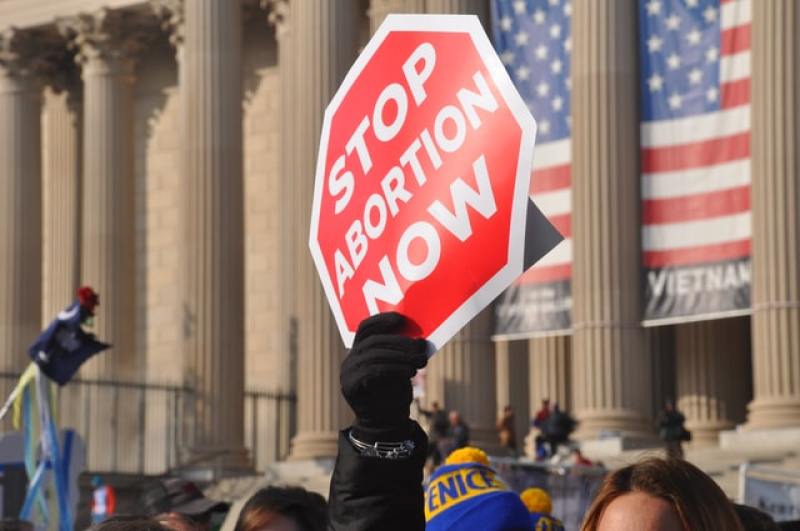
While President Joe Biden's Administration battles the controversial Texas Heartbeat Act with the Women's Health Act, a United States Senator from Arkansas has reportedly predicted that the Supreme Court would be the one to overturn Roe v. Wade.
The Blaze highlighted that Sen. Tom Cotton predicted the Supreme Court overturning Roe v. Wade before a Federalist Society audience during a conference held in Washington, D.C. Cotton cited the Dobbs v. Jackson Women's Health Case that the Supreme Court accepted to review on its constitutionality.
Cotton reasoned that a majority of the Supreme Court judges are said to be "textualists or originalists" in so far as their interpretation of the United States Constitution is concerned. He pointed out that the only block to this is the pressure of "elites" against the judges.
"The only thing standing in the way of justices doing the right thing is the intense social pressure of liberal elites. Now is the time for true friends of the Constitution to speak up," a person who attended the conference quoted Cotton in saying.
The Washington Free Beacon explained that the Federalist Society conference was closed to the press but their source said Cotton delivered the said speech citing the Dobbs case that manifests the "kind of pressure" imposed by the elites. The Free Beacon pointed out to the Amicus Brief filed on Monday by the American Bar Association for the said case that "urged the justices to retain Roe."
"The brief warned that a contrary decision would severely damage the rule of law and the public's perception of the Court as a non-political institution. The American Bar Association represents approximately 60,000 lawyers and is influential in judicial selection, particularly under Democratic presidents," the Free Beacon said.
"A number of prominent law professors, among them current and former deans of top law schools, continued in a similar vein in a second amicus brief filed Monday. They predicted a victory for Mississippi will erode 'the bedrock of (the Court's) legitimacy'," the media outlet added.
Media bias
It's worth noting that Supreme Court Justice Clarence Thomas blasted the media for its biased coverage of Court rulings, saying that by phrasing reports in a certain way, the media makes it seem like the Justices decide on cases based on their personal beliefs, not by what is written in the U.S. Constitution. This, he explained, "jeopardizes any faith" in the Supreme Court.
"I think the media makes it sound as though you are just always going right to your personal preference. So if they think you are anti-abortion or something personally, they think that's the way you always will come out," Justice Thomas said.
"That's a problem. You're going to jeopardize any faith in the legal institutions. And I think the media and the interest groups further that," he added.
Better without Roe
The Supreme Court announced on Tuesday the date they would hear the Dobbs v. Jackson Women's Health Organization case, which is on December 1. The court would be deciding on the constitutionality of states banning abortions that particularly involves Mississippi. The lawsuit was actually filed against Mississippi for banning abortions for pregnancies 15 weeks and beyond.
On the other hand, Mississippi has asked the Supreme Court to overturn Roe v. Wade after the former accepted to review their case in May. The state reasoned that Roe v. Wade is "egregiously wrong" if one is to have "a sound understanding of the Constitution" as per Attorney General Lynn Fitch who sent a 49-page brief to the Supreme Course in line with the case.
Previously, Cotton raised that America would be better off without Roe v. Wade since the constitution provides states the power "to protect the health of the mother" and "to adopt reasonable regulations on a practice like abortion to protect the unborn life of the baby."
He said, prior to the Supreme Court decision on Roe v. Wade, the states were making their own abortion laws as far back as 1973. He raised that when the Supreme Court overturns Roe v. Wade, states would be empowered again and act as they used to.
"Until 1973 states were making changes to their abortion laws, some states were liberalizing their laws, some states weren't. Without Roe v. Wade, once again states would have the power to take their own course," Cotton underscored.
"(It is) high time for the Supreme Court to revisit this issue," he stressed.
























